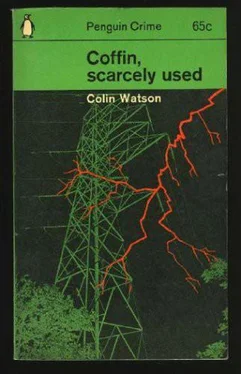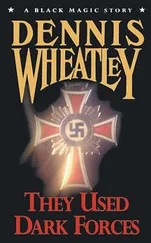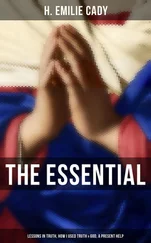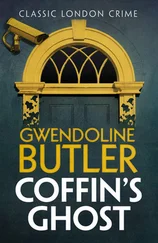Purbright, for lack of anything better to do, took a copy of the paper along to the office of the Chief Constable. Mr Chubb had, as it turned out, read it already, and was now interested to know if some obliging witness had come forward to prove that the whole affair was just an unfortunate misunderstanding.
“You do see, don’t you, my boy,” he explained in his thin, cultured voice, dried up with calming important citizens and lecturing Flaxborough Historical Association on Bronze Age burial, “that the sooner this business is cleared up the better. There is doubtless some quite simple explanation which eludes us. On reflection, I find it incredible that poor old Gwill would have been mixed up in anything, well, untoward.”
“I fully appreciate that, sir,” said Purbright. “None of us cares for discredit to be hanging over the town.” Chubb nodded his approval of this sentiment. “On the other hand, sir, it is my duty to advise you that the inquiries we have made into the matter so far have all tended to strengthen the case for supposing Mr Gwill to have been murdered.”
The Chief Constable looked pained, then raised his brows in invitation to Purbright to elaborate this distasteful theme.
Purbright spread out a couple of sheets of paper on which he had jotted notes. Unhurriedly, he glanced over the main headings, read some of the paragraphs to himself, and then looked up to Chubb, who, on the inspector’s entry, had levitated as usual while inviting his visitor to a chair and now leaned gracefully athwart a tall filing cabinet in one corner.
“It appears,” Purbright began, “that contrary to our earlier supposition, Gwill was not alone in his house on the night of his death. Mr Gloss has since admitted that he was actually in the company of Mr Gwill until quite late. He has further alleged that Doctor Rupert Hillyard was with him also.
“His story was that while he and Doctor Hillyard were talking to Gwill, the telephone rang and Gwill answered it. In response to the call—and Mr Gloss says he couldn’t gather who made it or what was said—Gwill is supposed to have hurried out of the house and not returned. If all this is true, the likelihood of a calculated attack on Gwill, or rather of some sort of trap laid for him, becomes very strong.”
Chubb shifted his position slightly to stare out of the window. “Mr Gloss has acted rather foolishly in not coming forward at once with these facts. And I must say I’m surprised at Hillyard’s reticence. He’s said nothing to you, has he?”
“I haven’t questioned him yet, sir.”
“All the same, the man surely must have realized something was wrong and that it was his duty to come along and give us what information he could. Of course”—Chubb turned to Purbright and smiled gently—“Hillyard’s rather an odd chap in some ways. He’s not always quite himself.” And with this indulgent interpretation, the Chief Constable’s gaze went back to the sycamore against the further wall of the station courtyard.
Purbright continued. “A witness has also been found who saw a van being driven out along Heston Lane late on Monday night and watched it return. Her description suggests that it was Mr Jonas Bradlaw’s van. It seems very likely, in my opinion, that all three of them were there that night, and not just two.”
“Why should Mr Gloss not have mentioned Mr Bradlaw’s presence, in that case?”
“I don’t know, sir. One explanation could be that Mr Bradlaw and the doctor knew that they had been seen on their way to the house on foot but relied on no one having noticed Mr Bradlaw, who would have been pretty well concealed inside his van. It also happens that Mr Bradlaw went to some pains to establish an alibi for that time.”
“A false one, you mean?”
“It could very well be false.”
“Is there anyone else concerned, do you think?”
“I thought at first that the nephew was probably implicated.”
“The newspaper fellow?”
“Lintz, yes. But as time goes on he seems to slip further away as a possibility. For one thing, he was deliberately made part of Bradlaw’s alibi, and nothing we’ve been able to find out suggests collusion between him and the other three. Still, we can’t forget that he benefits materially from Gwill’s death more obviously than anyone else.
“There is one other person,” went on Purbright, “who I can’t help feeling fits into the business in some way or other. Mrs Carobleat.”
Chubb gave him an inquiring glance. “But she was miles away, surely?”
“So she says. I propose to have a word with the Shropshire people about that and perhaps take a trip over there myself. If you’re agreeable, of course, sir.”
The Chief Constable looked doubtful. “That’s a bit out of the way, isn’t it?”
“I shouldn’t like to rely on another force making the sort of inquiries I have in mind, or I shouldn’t hesitate to pass them on, sir. I’ve an idea that a close check on Mrs Carobleat’s movements might be rewarding. It’s almost certain that she was Gwill’s mistress, and...”
“Oh, come; are you sure of that?” broke in Chubb, frowning.
“That’s the consensus of opinion, I’m afraid, sir.”
“You don’t suggest the woman might have had a hand in the fellow’s murder?”
“I shall be in a better position to say when we know what she was doing at the operative time, sir. And before, of course. The fact that she was away at all may have significance.”
Chubb sighed. “These affairs are damnably unpleasant. All this questioning and poking into other people’s business. I don’t know how you bring yourself to do it, Purbright, I don’t, really. The only other murder in Flaxborough I can remember was quite different. It was the shooting of old Mrs Donovan by Hargreaves, the pet-shop man. He was the perfect gentleman, poor Hargreaves. Came along here straight away afterwards and stood waiting at the counter downstairs until someone had time to attend to him. Then he handed over the revolver—he’d put it in a clean paper bag, I remember—and put eightpence in the Boot and Shoe Fund box, then confessed as nicely as you like. He used to keep that shop a perfect picture.”
Purbright bore with this reminiscence and then told Chubb about his arrangements for investigating the matter of the advertisements in the Citizen .
The Chief Constable listened. “My, but you’re being kept busy,” he said. “It’s amazing, isn’t it, how many odd little things go on under the surface of a place like this?”
“Yes, isn’t it, sir,” agreed Purbright. “Takes all sorts to make a world.” Not for the first time, he was visited with the suspicion that Chubb had donned the uniform of head of the Borough police force in a moment of municipal confusion when someone had overlooked the fact that he was really a candidate for the curatorship of the Fish Street Museum.
“When do you think we can expect an arrest, my boy?” asked Chubb. “Or would that,” he added in bloodless parody of jocularity, “be telling?”
Purbright clenched his teeth.
Mr P. F. F. Smith, manager of the Flaxborough branch of the Eastern Provinces and Bartonshire Consolidated Bank, rose and greeted his visitor with almost explosive affability. He had made sure, when the appointment was being fixed, that none of the bank’s much advertised services and favours would be invoked.
“Grand day,” beamed Mr Smith, motioning Purbright to The Customer’s chair.
“Well, it’s cold and rather foggy outside, actually,” Purbright corrected him.
“Yes, how miserable,” agreed Mr Smith. “Seasonable for the time of year, though.” He grinned over the gleaming nakedness of his desk top, on the very edge of which his aseptically manicured fingers beat a refined tattoo.
Читать дальше












